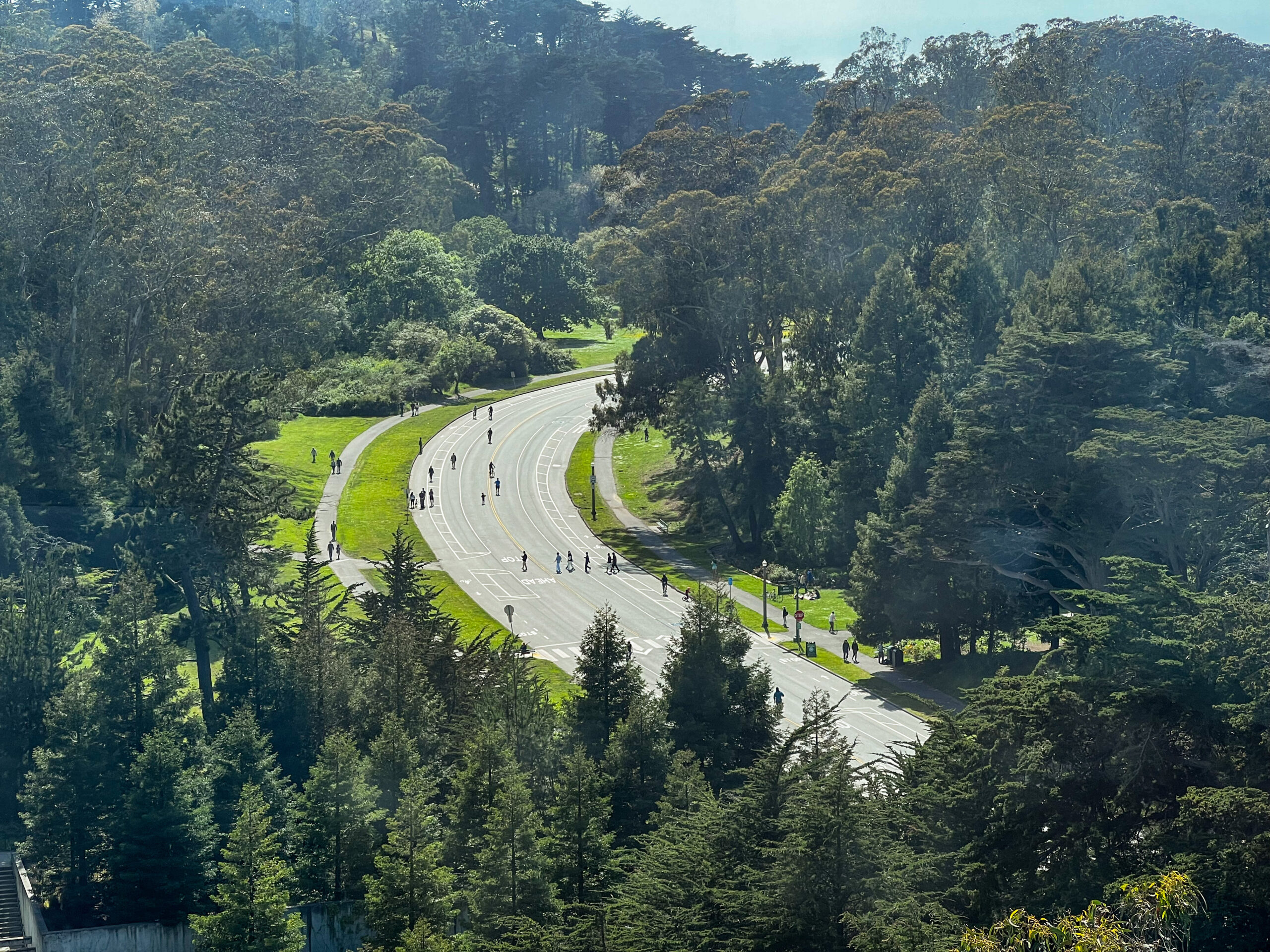The future of JFK Drive hangs in the balance as most supervisors have yet to make their positions clear ahead of a hearing that could determine whether cars are allowed on key sections of the road.
At a joint hearing of the Board of Supervisors and the San Francisco County Transportation Authority on Tuesday, the supervisors are set to review an equity study and two competing proposals—one from Mayor London Breed and the other from Supervisor Connie Chan—that envision different futures for the road and park.
Several supervisors have not announced how they plan to vote. Either proposal would need six votes, or the majority of the board, to pass.
Breed’s proposal calls for keeping JFK Drive closed to car traffic indefinitely, and is based on recommendations from the city’s transit and parks departments. It includes more than a dozen possibilities for improving accessibility to the park, such as better shuttle service and more ADA parking. Breed’s bill is co-sponsored by Supervisors Dean Preston, Rafael Mandelman and Matt Haney.
But that doesn’t make it a shoo-in. Also on the table is a competing proposal from Supervisor Connie Chan, whose district encompasses Golden Gate Park. She’s calling for a single eastbound lane of the thoroughfare to be reopened to car traffic, which she sees as a “compromise” between car-free advocates and others calling for accessibility.
While Breed’s proposal has the support of at least three supervisors, Chan’s proposal also has some support on the board. It’s co-sponsored by Board President Shamann Walton, who has made it clear that he is against the full closure of the road. Walton told The Standard in a text message on Monday that he stands by his previous statements on the issue.
Supervisor Ahsha Safaí, who previously tweeted his desire to reopen the road, texted that he will make his position public at Tuesday's hearing.
Meanwhile, Supervisor Hillary Ronen, whose staff previously told The Standard she planned to support the mayor’s bill, is speaking with Chan’s office today to finalize her position, according to legislative aide Santiago Lerma.
The offices of Supervisors Aaron Peskin, Gordon Mar, Catherine Stefani and Myrna Melgar did not immediately respond to requests for comment. They each could provide key swing votes to either side in what is likely to be a lively discussion on Tuesday.
Before hearing the competing proposals, the boards will first consider an equity study, which surveyed around 750 San Francisco residents to evaluate access changes overall and specifically from some of the city’s furthermost neighborhoods from the park.
The study, released ahead of the meeting, found that the cost and availability of parking were the biggest barriers to getting to Golden Gate Park for residents coming from Districts 3, 10 and 11. Before the pandemic, fewer than half of the respondents from those districts were regularly using the park. Once it was closed to cars in 2020, 18% said they’re using it even less.
While it did not give a policy recommendation, the study credited Breed’s proposal for addressing travel barriers while raising concerns that Chan’s does not adequately plan for drop-off and loading areas at the Music Concourse, the central hub for the park’s museums.
Tuesday’s vote could seal the deal on longtime advocacy for and against cars on the road.
After the city agreed to close the road on Sundays in 1967, some advocates have been pushing to extend the car-free days, pushing the city to gradually expand the closure to some holidays and occasional Saturdays. Then, during the beginning of the Covid pandemic, the city closed JFK Drive, along with the Great Highway, to car traffic to encourage residents to recreate safely outside.
The campaigning on both sides of the issue has been fierce, with groups like Walk SF, Kid Safe SF and the San Francisco Bicycle Coalition hosting rallies to push for a permanent ban on cars. On the car-friendly side, players including the de Young Museum have spent hundreds of thousands on ads.
